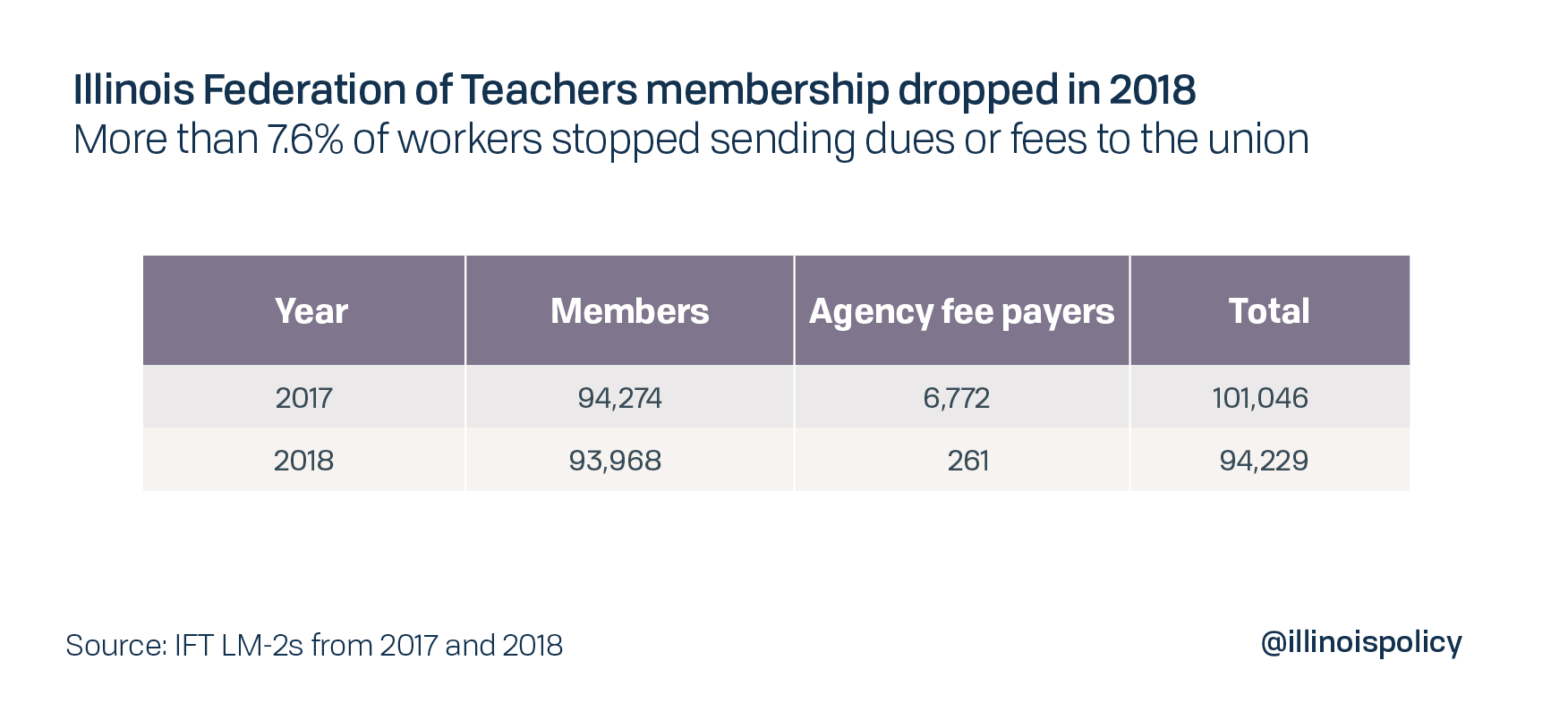More than 6,800 Illinois educators have stopped sending money to IFT
More than 6.7% of employees represented by Illinois Federation of Teachers in Illinois are no longer paying dues or fees to the union.
The Illinois Federation of Teachers, or IFT, is losing members.
That’s according to the union’s own federal reporting documents, filed with the U.S. Department of Labor on March 28, 2019.
In 2017, the union took dues and fees from 101,046 workers in Illinois. In 2018, that number sank to just 94,229.
That means over 6.7% of workers represented by IFT in 2017 are no longer paying the union.
In June 2018, the U.S. Supreme Court ruled that government employees could no longer be forced to pay a union just to keep their jobs. Before that decision, public school employees who were not union members were deemed “agency fee payers” and had to pay fees to the union. Members had to pay dues.
Significantly, the 6.7% drop in payers also includes former union members. IFT was smaller in 2018 than it was in 2017.

It isn’t surprising that Illinois’ public school educators don’t want to fund IFT. The union spends just 26 cents of every $1 on representing workers.
IFT spends little outside of the Chicago area. The union on average sends $3.8 million a year to Chicago and suburban affiliates, including $2.8 million to the Chicago Teachers Union. All of its downstate affiliates, combined, get just $70,000.
But teachers now have a real voice in where that money goes – and have other options.
Illinois’ public educators can join teachers from around the country in alternative organizations, such as the Association of American Educators, or AAE. AAE, with over 22,000 members, is the largest nonunion professional educators organization in the nation.
Organizations such as AAE provide liability insurance and job protection coverage – often at a fraction of the cost of union membership.
Plus, public school employees who opt out of their unions retain any benefits promised to them in the union’s contract with the school district.
Interested teachers can learn more about where their dues money is going and easily opt out of the union here.
